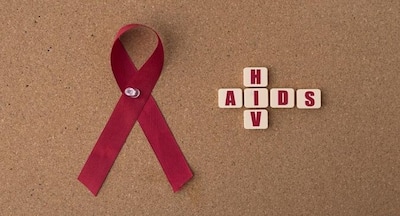Don’t Miss Out on the Latest Updates.
Subscribe to Our Newsletter Today!
World AIDS Day: Notice The Signs, Avoid Transmission And Understand Treatment

World Aids Day is commemorated on December 1 every year to raise awareness about HIV/AIDS and to offer solidarity for those who are affected by the disease. Everything you need to know about the condition is right here.
World Aids Day is commemorated on December 1 every year to raise awareness about HIV/AIDS and to offer solidarity for those who are affected by the disease. According to the World Health Organization, this year's theme is "'End inequalities. End AIDS'. WHO and its partners are emphasising the rising inequities in access to basic HIV services, with a special focus on those who have been left behind.
AIDS is a prevailing disease that affects millions of people across the world. For the unversed, AIDS affects people who have been affected with HIV (human immunodeficiency virus). It is a virus that targets the immune system of the body and can progress to AIDS if left untreated. AIDS, or acquired immunodeficiency syndrome, is a life-threatening condition that affects HIV-positive people. However, this does not imply that everyone who has been infected with HIV has developed AIDS. So, what's the connection?
Understanding The Connection Between HIV And AIDS
When HIV attacks the body, it disrupts the proper functioning of the immune system by attacking the immune cells called CD4 cells. With time, this can lead to a lot of health conditions. It is generally transmitted through blood, semen, vaginal fluids and breast milk. Hence, it is not transferred through casual contact.
Also Read
Managing HIV is possible with proper medication and care, and a person can live for a longer time. However, if left untreated, HIV can develop into AIDS, which is a serious condition.
HIV evades the immune system, meaning it blocks its pathways that protects a person against diseases and infections. This makes the person with the condition susceptible to many other problems, including pneumonia, tuberculosis, herpes, brain disorders, etc.
There are three stages of HIV progression: acute stage, which is the first stage; chronic stage and AIDS. The progression varies from person to person.
Transmission
As mentioned earlier, HIV transfers from one person to another through sex, sharing needles, sharing tattoo equipment, from a pregnant woman to baby, breastfeeding, exposure to blood, semen, vaginal and rectal fluids. It could also be transmitted through an organ transplant or blood transfusion.
Unlike popular belief, HIV does not transfer through skin contact or kissing. Air, water, sharing drinks, sharing bedding, mosquitoes do not spread the virus.
Symptoms Of HIV
According to UNAIDS, approximately 38 million people are affected by AIDS across the globe. 15 per cent of 1.1 million affected in the US are unaware of the fact that they are living with HIV. Without awareness and proper treatment, people with HIV can develop AIDS sooner, which is why you need to know the symptoms of the disease to prevent its progression.
- Recurrent fever
- Night sweats
- Chronic fatigue
- Dark splotches under the skin or inside the mouth
- Mouth sores
- Sores or lesions of the genitals
- Bumps or rashes on the skin
- Rapid weight loss
- Anxiety and depression
- Problems in concentrating
- Memory loss
- Chronic swelling in the armpits, neck and groin
Antiretroviral therapy, used to suppress HIV, can help control and prevent its progression. Other complications, like AIDS, can also be prevented.
Treatment
As mentioned, the main treatment involves antiretroviral therapy. It helps prevent HIV from reproducing and destroying CD4 cells. Many antiretroviral therapy medications are combined with other medications to manage HIV.
Prevention
Since there is no vaccine available to treat HIV, it is essential that we take the necessary steps to prevent the onset of the lethal disease.
- The biggest risk factor of developing AIDS is unsafe sex. Learn how to use a condom properly to avoid contraction
- Make sure you and your partner get tested for HIV
- If diagnosed with HIV, take your medications properly to avoid complications
- Get checked for other sexually transmitted infections (STIs) as they increase the risk of HIV


